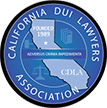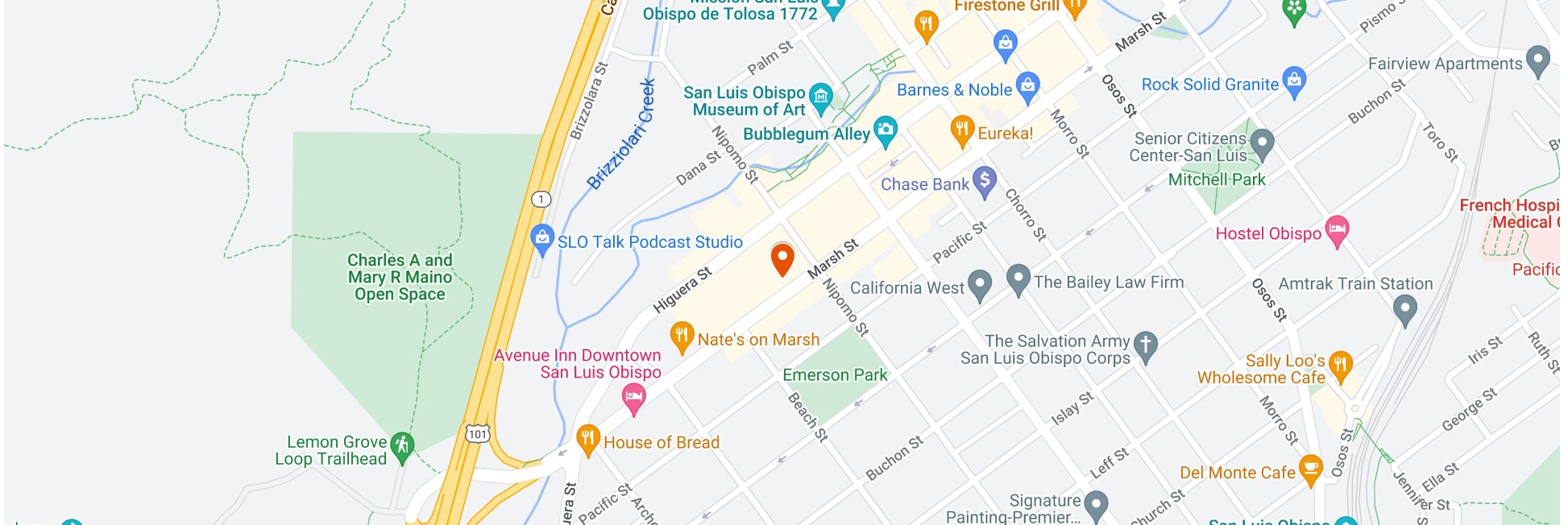A DUI charge is a serious matter that requires multiple hearings, including one before the DMV. The California DMV can suspend or revoke your license even when you have not been officially convicted of DUI. You could contest the suspension/revocation by requesting that the DMV holds an administrative hearing.
Considering how it is challenging to win at the DMV hearing, most suspects who managed to do so had appropriate legal representation. To stand a chance of winning your hearing and preventing the suspension of your license, you must seek legal counsel. All the rules of evidence are intact during the proceeding. Thus, you need a lawyer who can poke holes into the state's evidence and challenge the case against you well.
At San Luis Obispo DUI Attorneys, we have experienced DUI lawyers who will fight for you by mounting a solid defense strategy at the DMV hearing. We will thoroughly investigate the circumstances surrounding your case and find weaknesses in the state's evidence that can help your case. After defending you at the DMV hearing, we will fight for you in criminal court to ensure you obtain the best possible outcome. Call us as soon as you are arrested for a consultation and case evaluation.
California DMV Hearing Definition
A DMV (Department of Motor Vehicle) hearing is formally referred to as a Driver Safety Administrative Per Se (APS) hearing. It is a proceeding at the DMV offices. The hearing occurs at the DMV offices, not in criminal court like other criminal charges. The only problem this hearing solves is whether the DMV should suspend your driving privilege due to your arrest for intoxicated driving.
If arrested for driving while intoxicated in California, the police officer will take your license and give you a ‘Notice of Suspension (pink).’ You will use this pink notice for one month as your temporary driver's license.
The 'Notice of Suspension' also informs you that you have the right to an administrative hearing to stop the DMV from suspending your license. Note that even though you have the right to a DMV hearing, it does not come automatically. You should request it not more than ten days from your arrest date. Failure to request the proceeding in ten days will result in you losing the legal right to do so. Your driving privileges will then automatically go into suspension once the one-month validity of the temporary license expires.
If you request the hearing, the DMV will delay suspending your license pending the hearing's outcome. Your license will not be revoked/suspended if you win the hearing. If you lose, your driving privileges will be suspended/revoked based on your number of DUI priors. If the DMV suspends your license, you may later qualify to reinstate it once you:
- Pay a license reinstatement fee. This fee is usually $125.
- Submit an SR-22 form.
- Enroll in DUI school.
- Have an IID (ignition interlock device) installed in your vehicle, depending on your case.
Your Legal Rights During The Proceeding
DMV DUI proceedings are usually not as formal as criminal court trials. However, you have fundamental legal rights during the proceedings, irrespective of the informality. You can seek legal representation, although you will pay for it from your pocket. This implies unlike in criminal court proceedings, the DMV does not usually appoint a lawyer for you if you cannot afford one. You can also:
- Testify in your favor.
- Cross-examine eyewitnesses.
- Subpoena and call witnesses to the stand, including the officer who arrested you.
- Review and contest evidence, for example, the BAC test results and police report.
How to Schedule a DMV Hearing
You schedule a DMV hearing by contacting your local Department of Motor Vehicles driver safety office. The hearing takes place at this office. These offices differ from the ones where car registration occurs or where you apply for your driver's license.
The private DUI criminal lawyer you retain for legal representation at your court case will likely help you request and set up the hearing, provided you are still within the ten-day timeframe. They may also attend the proceeding for you, meaning you need not show up if you will not be testifying. In most cases, DUI DMV hearings are held over the telephone instead of in person.
Defending Yourself at the DMV Proceeding
Preparing for a DMV hearing can significantly increase your likelihood of prevailing at the hearing. California DMV hearings for DUI have a pretty broad scope. The presiding hearing officer considers several issues, including:
- Did the police have probable cause/reasonable suspicion to arrest you for DUI?
- Did the police have legal cause to place you under arrest?
- Did you drive with a .08% or higher BAC?
If you supposedly declined to undergo chemical testing, the last issue becomes an arguable point during the hearing. In this case, the key considerations of the hearing officer will be:
- Did the police inform you your license would be revoked/suspended if you declined to undergo a DUI chemical test?
- Did you willfully decline to undergo chemical testing after the police required you to?
After obtaining answers to these questions, the presiding hearing officer can either:
- Sustain the action, that is, suspend your driving privilege depending on the supposed DUI.
- Set aside the action, that is, reverse the license suspension for the supposed DUI. Should the hearing officer reverse the suspension, it is similar to being pronounced not guilty.
The officer should reverse your license suspension if you manage to disprove the above issues or stop the state from admitting incriminating evidence during the hearing.
These are common defenses an experienced DUI defense counsel can argue for you during your DMV hearing:
- You did not drive the vehicle.
- The police placed you under arrest at an illegal DUI checkpoint.
- The police lacked probable cause to arrest you for driving while drunk.
- The officer failed to do a proper fifteen-minute observation.
- The breathalyzer was not functioning correctly or was uncalibrated.
- You have physiological reasons for your falsely high blood alcohol content level.
- You did not decline to undergo chemical testing.
- The arresting officer failed to properly advise you of the consequences of refusing to take a chemical DUI test.
- There were serious mistakes with the arresting officer's paperwork.
- You were arrested for breaking the zero-tolerance statute, and the arresting officer failed to lay the foundation for your BAC results.
What Next After Winning the DMV Proceeding?
If you successfully argue your case before DMV, it will not suspend your license. It also implies the prosecution could offer you a favorable deal during plea negotiations for the criminal DUI case. Should the criminal DUI hearing reveal significant mistakes in the prosecution's case, the prosecutor may dismiss your drunk-driving charges altogether.
Although the criminal DUI and DMV hearing procedures are entirely distinct, prevailing in the DMV proceeding does not mean you will automatically win the criminal court DUI case. For some reason, the prosecution could still believe it has enough substantial evidence to take your case to trial.
Should you eventually be found guilty of your DUI offense in criminal court, the presiding judge has the authority to suspend or revoke your license. That is why you want to hire a DUI defense lawyer who knows what to do to prevail in criminal court and administrative proceedings.
The Consequences of Losing the Hearing
You can lose at your DMV hearing. However, even after losing, your lawyer may have collected info during the proceedings that could convince the prosecuting attorney to agree to a reduced charge. Given plea deals or winning at trial may also make the DMV set aside your driver's suspension/revocation even if it has already been effected.
However, regarding your license, the revocation/suspension will be effected should you lose the DMV hearing. The circumstances and length of the suspension/revocation will be based on your past DUI convictions.
License Suspension/Revocation for 1st DUI Offense
If it is a 1st offense DUI arrest, and you have lost your hearing, the DMV will suspend/revoke your license for a maximum of ten months. You may change the suspension to a restricted license after one month of suspension. A restricted license enables you to drive only to and from your DUI school and work.
You can only convert your license into a restricted license after you:
- Submit an insurance form (SR-22 form).
- Pay a reinstatement fee of $125.
- Join DUI school.
License Suspension/Revocation for 2nd DUI Offense
If it is your 2nd offense DUI within ten years, the license suspension will last two years if you lose the DMV hearing. You can apply for a restricted driving privilege after twelve months if you have complied with the required conditions.
License Suspension/Revocation for 3rd DUI Offense
If it is your 3rd DUI within ten years and you lose the hearing, the license suspension will last three years. You can apply for a restricted driving privilege after a year once you fulfill the required conditions.
License Suspension/Revocation for 4th and Subsequent Offense DUI
If it is your 4th/subsequent DUI offense within ten years and you lose the hearing, your license revocation/suspension will last four years. You may apply for a restricted license after a year by complying with the required conditions.
DMV Proceedings for Out-of-State Motorists
If you are a non-California resident and were placed under arrest for driving under the influence in California, you would request your DMV hearing the same way we mentioned earlier. You could hire a California lawyer to represent you by telephone or at the hearing.
If you lose the DMV hearing, the DMV will suspend your driving privilege in California just as though you live in California. However, your driving privilege in California being suspended/revoked will likely impact your license in your state of residence because most states belong to the DLC (Driver's License Compact).
The DLC concept is that every motorist countrywide has one driver's license and driving record. States that belong to the DLC report driving arrests (DUI included) to one another. Consequently, your state of residence may take independent action against your license if arrested in California and the California DMV suspends your license after losing the hearing.
That is why it is essential to retain a DUI defense lawyer who effectively convinces the DMV not to suspend or revoke your license.
DMV Hearing for Underage DUI
If you are below 21 years and operate a vehicle with a BAC level of as low as .01%, you violate the zero-tolerance statute. Violating the zero-tolerance statute is a civil offense. The presiding hearing officer can suspend your license after establishing that you operated a vehicle with detectable alcohol in your bloodstream.
If you lose the DMV hearing, your license will be suspended for a year. And if you were yet to obtain a license, the DMV will postpone your privilege to acquire one for a year. If you declined to take a chemical DUI test, the DMV would suspend your license for up to three years based on the number of prior DUIs you have.
Appealing The Hearing Officer's Decision to Suspend Your License
If you believe you should have won at the DMV proceeding and the DMV merely misunderstood some things, you can appeal its decision. You could request the department to review its decision or bring an appeal directly to the superior court.
You will find information regarding the timeframe and instructions for filing the appeal on the written form that notifies you of the DMV's decision to suspend your license. You must pay a fee of $120 for the departmental review.
Should you file an appeal directly in court, you must do so via a writ of mandate. Filing a writ, in this case, will generally cost you up to 3,500 dollars. If unsatisfied with the superior court's decision, you could appeal to the appellate court. Both procedures have stipulated time frames and strict rules. Consequently, you want to hire a skilled appeals lawyer should you opt to appeal the DMV hearing result.
The Difference Between a DMV Hearing and Criminal Court Proceedings
The primary difference between a DMV hearing and a DUI criminal court case is that DMV hearings are presided over by a hearing officer as opposed to a judge. A hearing officer is a DMV employee, and they do not usually have formal legal training. A DUI criminal case can be presided over by a judge (bench trial) or jury (jury trial). A jury comprises impartial jurors— twelve individuals who should unanimously agree you committed a DUI offense for a conviction to occur. That is why you want to hire a DUI defense lawyer experienced with DMV hearings and court trials. Since these two proceedings are held differently, you want an attorney to understand how both systems operate.
Another notable difference is that the DUI criminal court trial is much more comprehensive. The lawyers have more leeway to explore a broad range of legal defenses to fight DUI charges. On the other hand, DMV DUI hearings are much more relaxed. The proceedings are not as comprehensive, and they are more informal than formal.
Another difference lies in the standard of proof that must be met— how much evidence is needed to demonstrate guilt. In DMV hearings, the burden of proof can be more easily met than in criminal court proceedings. Here, it must be proven "by a preponderance of the evidence" that you drove an auto while alcohol- or drug-impaired or with an unlawful BAC. "A preponderance of the evidence" means it is more likely than not that you broke DUI statutes.
In criminal DUI cases, the prosecution must prove "beyond any reasonable doubt" that you are guilty of DUI. "Beyond any reasonable doubt" is a much higher burden of proof than "by a preponderance of the evidence" that must be established in DMV proceedings, which are only civil proceedings.
Therefore, you can lose your DMV proceeding but prevail in the criminal DUI case, and vice versa is true. In DMV DUI hearings, there could exist reasonable doubt about your guilt; it just must be highly likely than not that you drove while intoxicated.
The third difference is that DMV hearings are held in an office, sometimes even via the phone, not in a courtroom like criminal DUI proceedings.
How the DUI Criminal Court Case and DMV Hearing Are Related
Unlike the DUI criminal court case, the DMV proceeding is not meant to determine whether you committed an offense. It focuses only on the facts of the arrest and whether it should revoke or suspend your license.
However, these two processes are closely connected. Testimony from the DMV hearing can make the prosecuting attorney drop your charges or offer a plea bargain of reduced charges. If at a trial by the jury or bench trial, you are pronounced not guilty of VC 23152 b (operating a vehicle with a BAC of .08% or higher), the verdict compels the department to restore your driving privilege. However, a charge dismissal or entering a nolo contendere or guilty plea to reduced charges does not affect the DMV's decision to revoke/suspend your license.
Find an Experienced DUI Defense Attorney Near Me
Driver's license suspension can impact your life in many ways. If arrested for driving under the influence, one body entitled to suspend your license is the DMV. Consequently, you want to do everything possible, including seeking legal advice and representation, to ensure you win the case against the DMV and to prevent license suspension.
At San Luis Obispo DUI Attorneys, we can aggressively defend your license against the DMV's decision to suspend it, regardless of your prior DUIs. We will also extend our services to the court, where we will develop a strong defense strategy to obtain the best possible outcome for your DUI case. Contact us for a cost-free initial consultation and case review at 805-321-1000.







